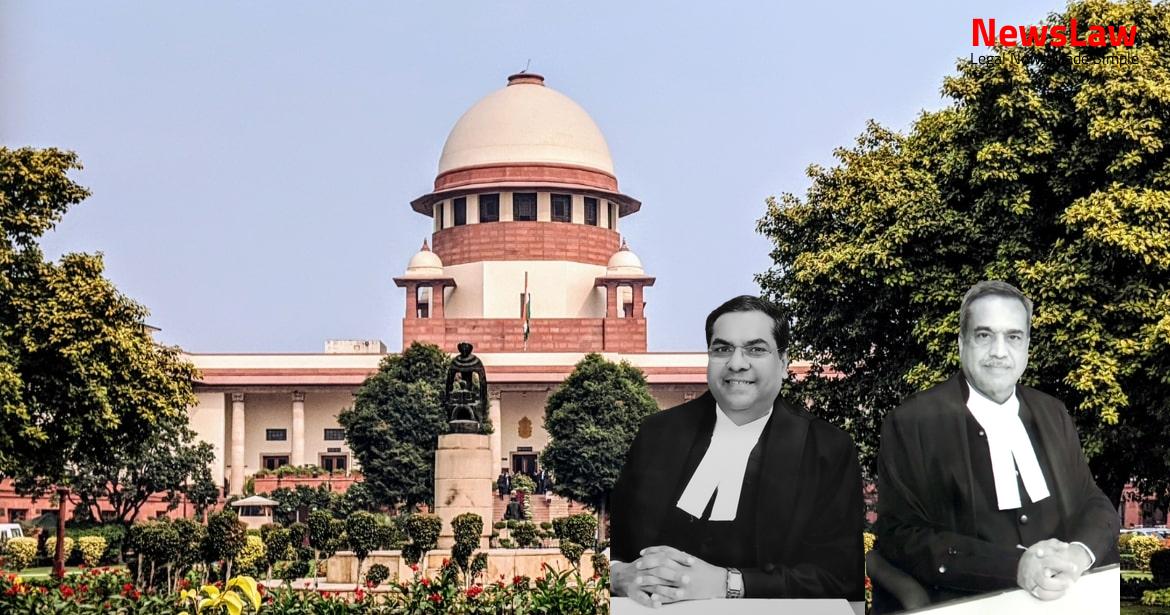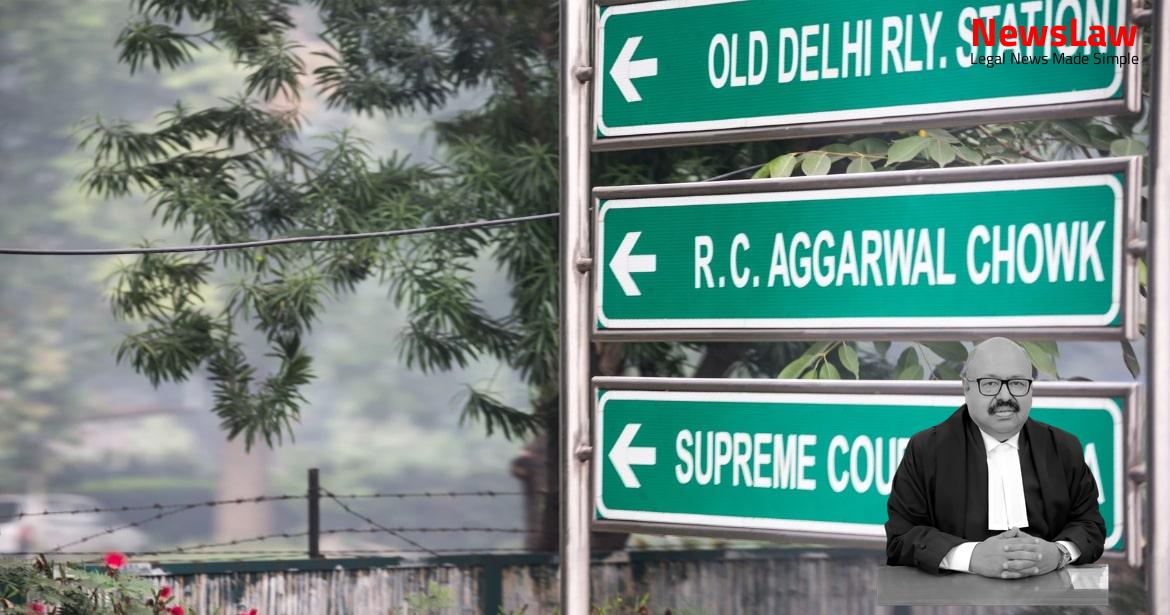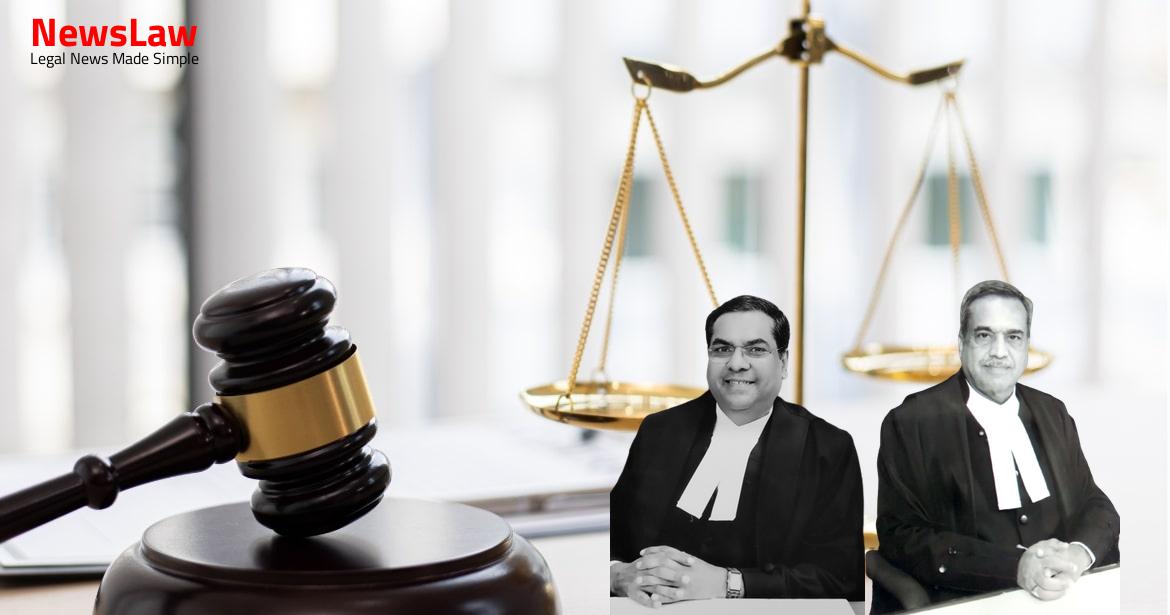The case delves into the nuanced legal analysis regarding the exclusion of Section 5 of the Limitation Act in appeals against the Recovery Officer’s order. The Court’s interpretation of the law provides critical insights into the application of statutes and the legislative intent. Follow along as we unravel the complexities of this legal issue.
Facts
- The appellant is aggrieved by the judgment and order dated 16.02.2016 passed by the High Court of Delhi.
- The High Court allowed the appeal of the respondent Bank and set aside the order of the DRAT.
- The DRAT had previously quashed and set aside the order of the Debts Recovery Tribunal which was regarding condoning the delay in appealing under Section 30 of the Act, 1993.
- The present appeal has been filed by the original respondent in response to the High Court’s decision.
Also Read: Legal Analysis on Conviction Based on Sole Testimony of Prosecutrix
Issue
- The key issue before the Court is the applicability of Section 5 of the Limitation Act to an appeal against the order of the Recovery Officer under Section 30 of the Act, 1993.
Also Read: Legal Analysis on Concurrent Sentences in Drug Trafficking Cases
Analysis
- The Appellate Tribunal has the power to condone delay beyond 45 days under Section 20(3) of the Act.
- Section 5 of the Limitation Act cannot be applied to condone the prescribed 30-day period for appealing against the Recovery Officer’s order.
- The exclusion of any provision for extension of time by the Tribunal in appealing under Section 30 of the Act shows the legislative intent for exclusion was express.
- The scheme of the Act limits the application of Section 5 of the Limitation Act to original proceedings before the Tribunal under Section 19 only.
- The judgement overruled the application of Section 5 of the Limitation Act by the High Court, citing the decision in International Asset Reconstruction Company of India Limited case.
- The RDB Act being a special law, the issue of applying Section 5 of the Limitation Act in the Recovery Officer proceedings does not arise.
- DRAT set aside the order passed by the Debts Recovery Tribunal condoning the delay applying Section 5 of the Limitation Act.
- DRAT observed that Section 5 of the Limitation Act shall not be applicable to the appeal under Section 30 of the Act, 1993 against the order passed by the Recovery Officer.
- High Court set aside DRAT’s order based on the decision in the case of A.R. Venugopal Vs. Jotheeswaran.
- The issue is not new due to the direct decision in the case of International Asset Reconstruction Company of India Limited Vs. Official Liquidator of Aldrich Pharmaceuticals Limited.
- It was held that Section 5 of the Limitation Act is specifically excluded for appeals under Section 30 of the Act, 1993.
- The High Court erred in setting aside the order passed by the DRAT and restoring the order passed by the Debts Recovery Tribunal.
- The delay in preferring the appeal under Section 30 was condoned by the Debts Recovery Tribunal, which was overruled by the High Court.
- The appeal succeeds and the orders passed by the High Court and the Debts Recovery Tribunal are quashed and set aside.
- Section 5 of the Limitation Act is not applicable to the appeal against the order of the Recovery Officer as per the law laid down by the Court and Section 30 of the Act, 1993.
Also Read: Legal Jurisdiction and Award Finality in Arbitration Dispute
Decision
- The order passed by the Debt Recovery Appellate Tribunal (DRAT) setting aside the order passed by the Debts Recovery Tribunal is restored.
- No order as to costs in the facts and circumstances of the case.
- Appeal is allowed accordingly.
Case Title: AVNEESH CHANDAN GADGIL Vs. ORIENTAL BANK OF COMMERCE (2021 INSC 784)
Case Number: C.A. No.-006898-006898 / 2021



